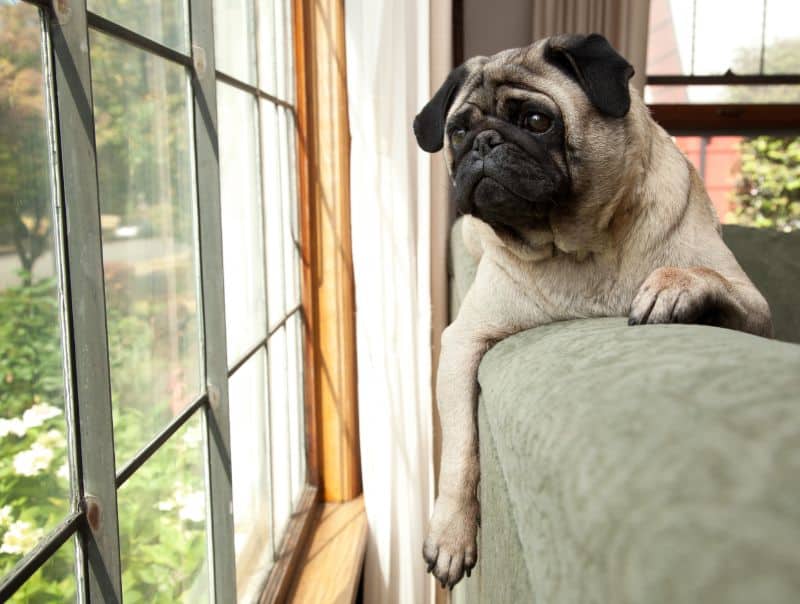After the Quarantine: Dealing with Change and Your Pet

Most pets thrive in a routine. They like to know when they will eat, exercise, and see you, naturally. During the past several weeks, though, the routine has probably been one that included lots of at home time. For us, it was a struggle, but for our pets who enjoyed the attention and companionship, it was wonderful.
Now that many cities have reopened work, school, and other forms of daily life, our pets may be dealing with the abrupt change in routine. Pets often have behavioral and emotional issues when change occurs too quickly.
This is why the team at Animal Medical Hospital & Urgent Care is here to discuss dealing with change and your pet.
Pet Separation Anxiety
Separation anxiety comes as a result of an intense disliking of time alone. This condition occurs in people, as well as dogs and cats. There are several reasons for this, from lack of socialization to genetics, trauma to sudden change.
Certain behaviors can emerge when a pet is coping with fear and anxiety, including:
- Loss of appetite
- Territorial marking/accidents
- Diarrhea
- Trembling
- Excessive barking
- Destructive behavior like chewing
- Scratching at doors and windows
- Attempts to escape
- Hiding
Because of the severity of certain symptoms, pets can experience a decreased level of immunity and have a compromised quality of life. To treat serious forms of pet separation anxiety, we first eliminate the chance of an underlying medical cause, then recommend behavior modification, supplements and medications, and other calming therapies.
Life After the Pandemic: Steps You Can Take to Help Your Pet
Remember that change is hard on your pet, so you can minimize the impact by introducing a new routine slowly.
- Set up times and areas where your pet can be alone. A crate is a good choice or a side area where they can spend time playing solo.
- Start your new routine as early as you can, hopefully about two weeks before you return to work or school. This means feeding your pet and exercising them at the same time each day.
- Your pet needs a lot of enrichment and toys in order to stay focused on something fun and active. Choose challenging mental games, like treat dispensing puzzles, as well as chew toys, and a variety of mental stimulus, like playing a television or keeping a curtain with a backyard view open.
- Stick to the routine you are establishing, even on weekends and holidays
- Consider streaming a live video of your pet during the day, to observe how they are doing.
- Some pets prefer to go to doggie daycare or have a pet sitter come by and walk or play with them midday. Just be cautious of COVID-19 exposure guidelines before having someone in your home.
- Be sure to reward your pet’s good behavior and ignore negative behaviors. Punishing your pet only leads to additional stress and fear.
Change and Your Pet
Change is constant, of course, but it doesn’t have to be sudden for your fur friend. We can take steps to ensure a smooth transition to work and school life after the pandemic, so that your pet avoids the behaviors associated with separation anxiety.
If you would like more information on how to deal with change and your pet, we are here to help! Simply give us a call. We look forward to seeing you and your best friend.
